As the 2024 presidential campaign gains momentum, former President Donald Trump’s support among evangelicals and conservative Christians remains as strong as ever. Despite facing multiple criminal charges and a history of personal misconduct, Trump’s backers within this demographic see him as a champion of their faith and values.
At a recent campaign rally near Dayton, Ohio, the religious fervor was palpable. Supporters donned T-shirts and hats proclaiming slogans such as “Jesus is my savior, Trump is my president” and “God, Guns & Trump.” Kimberly Vaughn from Florence, Kentucky, summed up the sentiment: “Trump supports Jesus, and without Jesus, America will fall.”
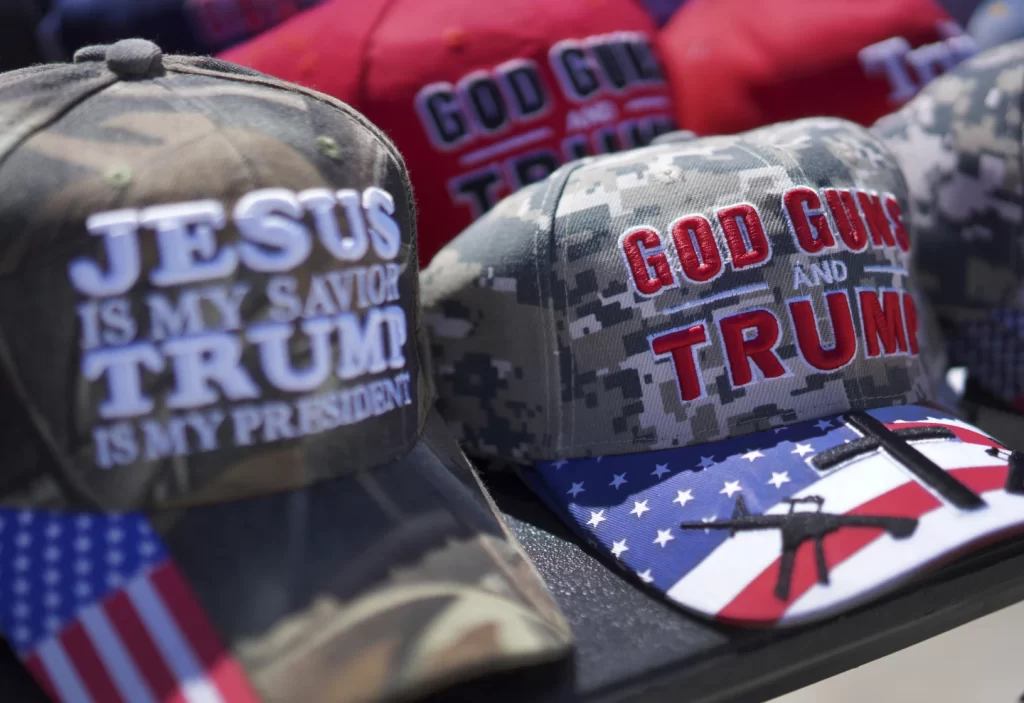
Many attendees expressed their belief that Trump shares their Christian faith and values, particularly their opposition to abortion and LGBTQ+ rights. They seemed unconcerned about the former president’s past conduct or the current indictments he faces, viewing him as a representative of a religion that offers second chances.
This unwavering support is not new. In the 2020 election, about 8 in 10 white evangelical Christians backed Trump, according to AP VoteCast. Even in the early 2024 primaries, where several openly conservative Christian candidates were available, Trump secured between 55% and 69% of the white evangelical vote in Iowa, New Hampshire, and South Carolina, as per AP VoteCast.
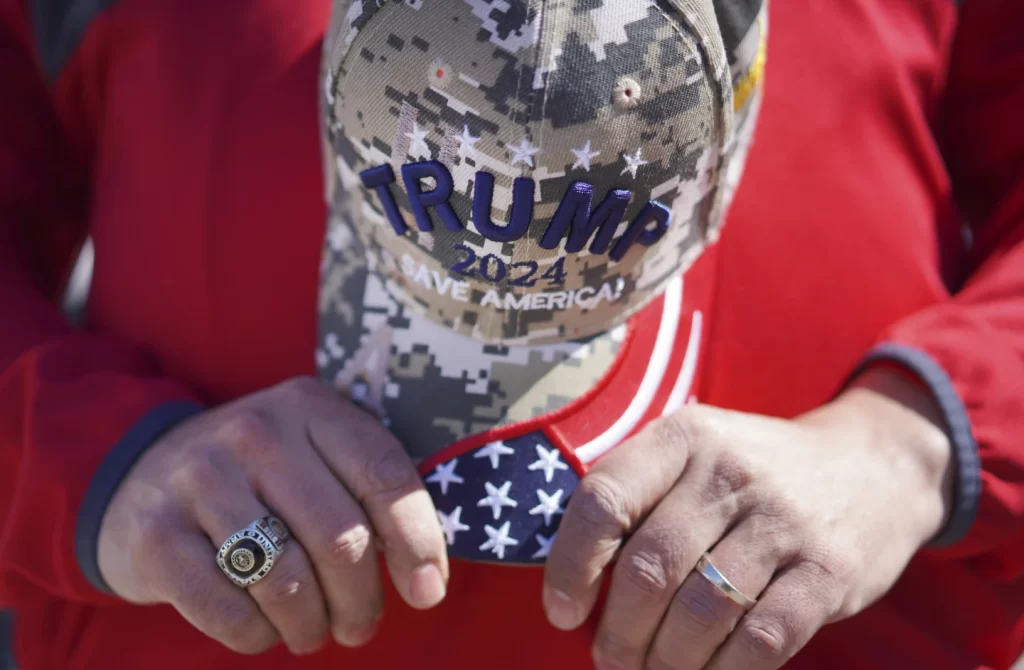
Trump’s ability to maintain this loyal base, despite his legal troubles and controversial statements, has frustrated a minority of conservative evangelicals who see him as an unrepentant poser. Karen Swallow Prior, a Christian author and literary scholar, noted that while Trump’s supporters once hoped he shared their faith, they now believe it themselves, ignoring his wavering stances on issues like abortion and LGBTQ+ rights.
At the Ohio rally, attendees cited their belief that Trump has followed the Christian path of repentance and starting anew. They emphasized the importance of opposing abortion, with many crediting Trump’s Supreme Court appointments for overturning Roe v. Wade.
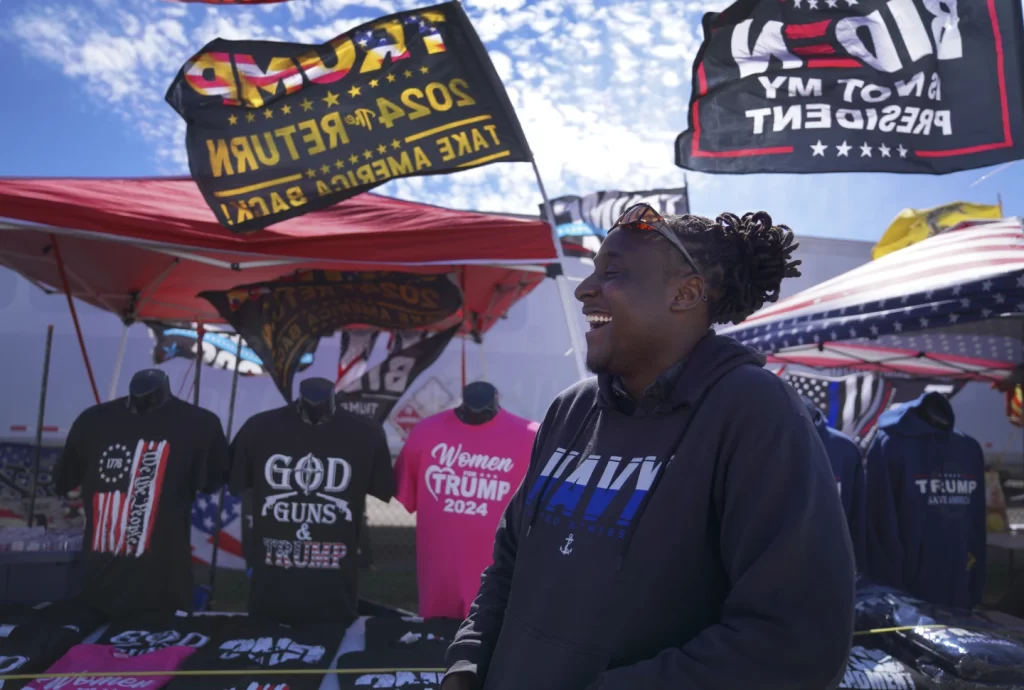
Beyond religious issues, Trump’s supporters also highlighted his stances on foreign policy, immigration, gas prices, and inflation. Robert Jones, president of the Public Religion Research Institute, noted that Trump’s rhetoric about immigrants “invading the country and changing our cultural heritage” resonates with his audience, echoing an “ethno-religious vision of a white Christian America.”
Trump’s rallies have taken on the symbols, rhetoric, and agenda of Christian nationalism, which typically includes the belief that America was founded as a Christian nation and seeks to privilege Christianity in public life. He has pledged to protect Christians in schools, the military, and government, fight the “persecution against Christians in America,” and combat the “toxic poison of gender ideology.”
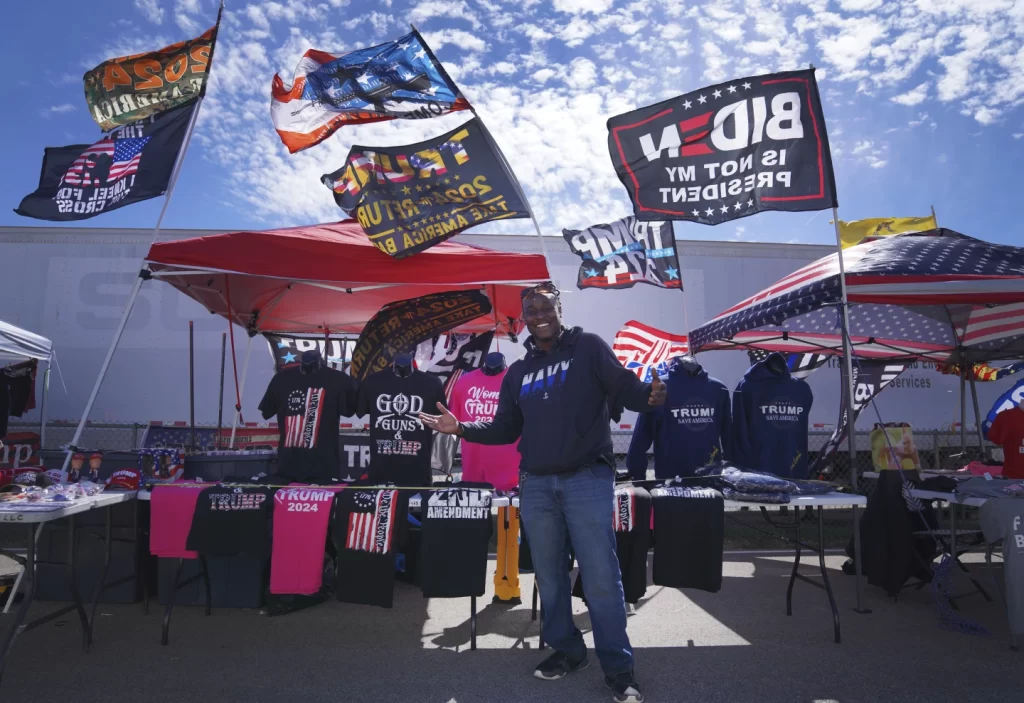
Some supporters at the Ohio rally expressed hope for a more Christian America, with one vendor, Thomas Isbell, stating that if he were president, he would only allow public worship by Christians.
While historians dispute the notion that the nation or its founding documents have Christian origins, Trump’s appeal to conservative Christians remains strong. As Mark DeVine, a Southern Baptist pastor and seminary professor, wrote in the online journal American Reformer, conservative Christians support Trump because they believe elected Democrats and bureaucrats have an “evil” agenda on issues ranging from abortion to gender to pandemic lockdowns.
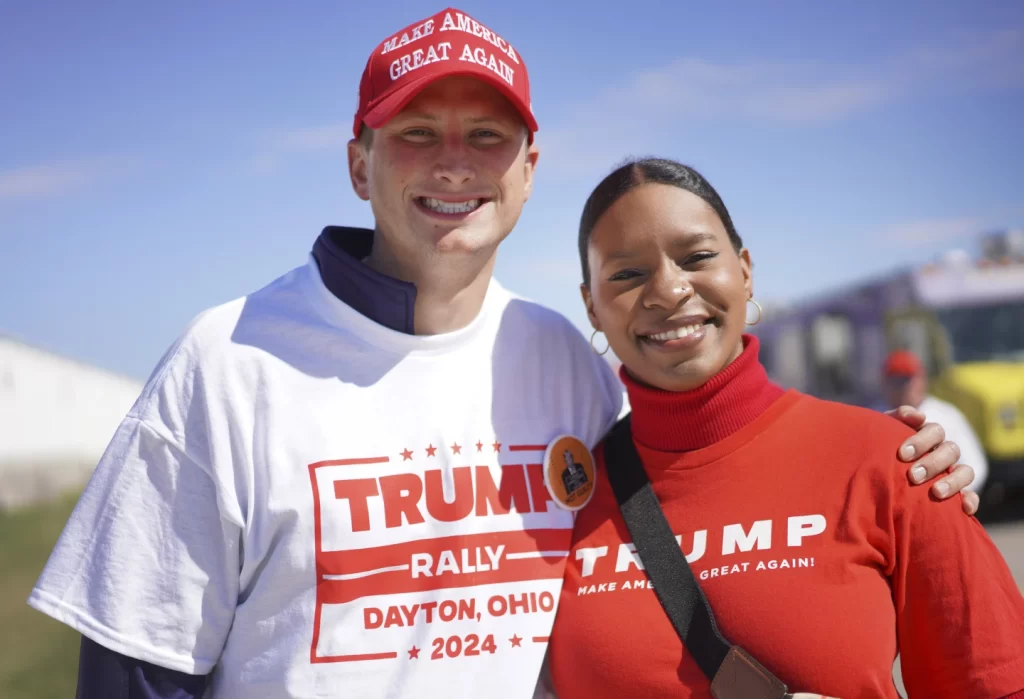
As the 2024 campaign continues, it is clear that Trump’s support among evangelicals and conservative Christians will remain a crucial factor in his bid for a third Republican presidential nomination. For many of his backers, Trump represents a bulwark against what they perceive as a threat to their faith, values, and vision of a “godly” America.



